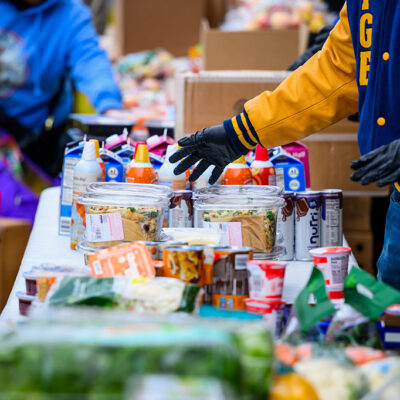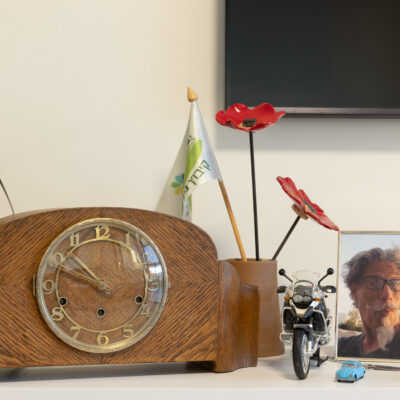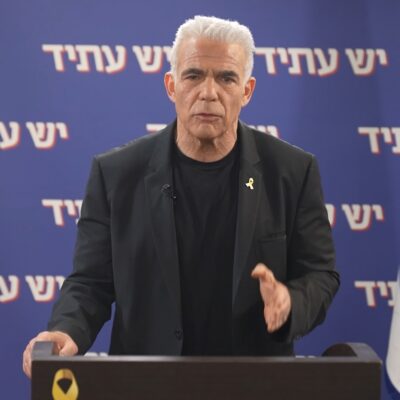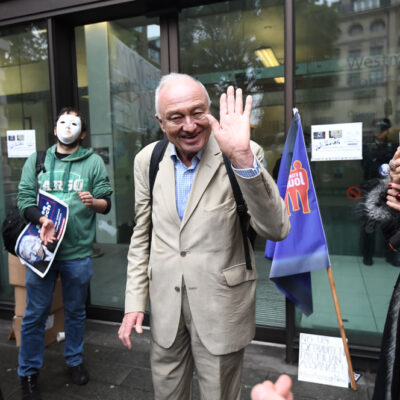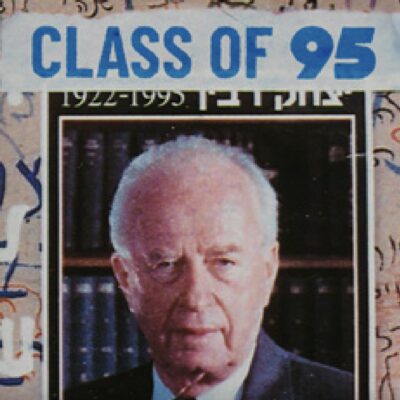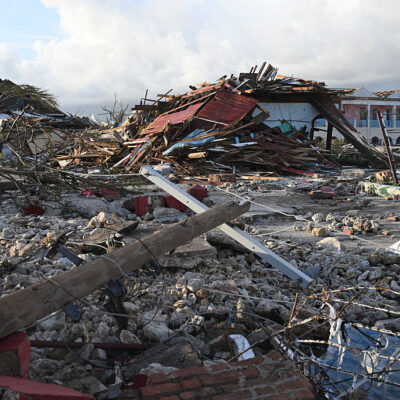Your Daily Phil: SNAP shuttering distresses recipients and the nonprofits helping them
Good Tuesday morning!
In today’s edition of Your Daily Phil, we report on how Jewish nonprofits are handling the slashing of SNAP benefits even as the government shutdown appears close to ending. We cover the World Jewish Congress’ gala last night in Manhattan and a “unity dinner” between Black and Jewish students at George Washington University. We feature an opinion piece by Rely Alon and Orit Meridan offering a model for how an organization with a diverse staff can navigate intense and divisive circumstances, and one by Rabbi Elyse Wechterman about shifting the dynamic in contract negotiations from transactional to covenantal. Also in this issue: Bianna Golodryga and Yonit Levi, Alex Karp and Amir Gissin.
What We’re Watching
The World Zionist Congress overwhelmingly passed a measure to advance a long-stalled power-sharing agreement between the center-left and center-right blocs, but negotiations on a final resolution are still ongoing and are expected to be wrapped up shortly, sources tell eJewishPhilanthropy.
Temple Emanu-El in New York City is hosting an event this evening for the launch of Don’t Feed the Lion, a novel for middle schoolers on the theme of antisemitism by journalists Bianna Golodryga and Yonit Levi. The authors will be joined by chess champion Garry Kasparov and comedian Elon Gold for a conversation moderated by Rafaela Siewert.
What You Should Know
The past 11 days have been a chaotic and distressing time for recipients of federal food assistance as the government shutdown has slashed their benefits and, in some cases, halted them altogether. For the nonprofits that have stepped in to support them, this period has also been stressful and frustrating, officials told eJewishPhilanthropy’s Nira Dayanim and Jay Deitcher.
Last night, the Senate voted to advance a stopgap funding bill, potentially paving the way for the government to reopen. Even so, SNAP benefits will not be disbursed immediately, and the past 11 days of cut benefits have already taken a toll on recipients.
According to Shelley Rood Wernick, associate vice president of the Jewish Federation of North America’s Center on Aging, Trauma and Holocaust Survivor Care, many Holocaust survivors live below the poverty line and therefore rely on SNAP benefits. Although many Jewish organizations provide supplemental support, the ongoing uncertainty has caused distress for the population, she said.
“One thing that Holocaust survivors have in common, they all have many different wartime experiences, but one thing they all had in common was lack of food,” Rood Wernick said. “And here to be threatened again, with the lack of food feels very… stressful is not even the right word to use. It’s incredibly distressing.”
Since the start of November, the Metropolitan Council on Jewish Poverty, America’s largest Jewish anti-poverty organization, has surged food to its over 200 network pantries across New York City. Increasing supplies by up to 50% for one week cost the organization around $500,000 in private dollars, David Greenfield, the group’s CEO and executive director, told eJP. “We’re putting a Band-Aid on what is essentially a gunshot wound, and it is all of the government’s making,” Greenfield said. “It’s very real. A lot of these times when we talk about a situation or a crisis, there’s folks who just assume, ‘Well, people will figure it out.’ There is no solution over here. There is no way to figure this out.”
Reuben Rotman, president and CEO at Network of Jewish Human Service Agencies, told eJP, the only silver lining of the current situation is that it has “helped to educate the community of the magnitude of neighbors who depend on government support for basic food assistance and reinforced the paradigm of cooperation that should exist between the nonprofit sector and government.”
For the Shalom Food Pantry in Albany, N.Y., which serves over 100 households, the past several weeks have been an opportunity for the Capital District community — Jewish and non-Jewish — to unite for a common cause. Chanie Simon, program coordinator of the Chabad-run pantry, told eJP that she has watched the entire community join together. Synagogues collected food. Other food pantries reached out to ask if they needed anything and sometimes asked for assistance themselves. The entire Capital District was ready to step up. “The phone’s been ringing nonstop,” Simon said. “Everybody is just working together to get the needs met.”
BATTLE PLAN
At WJC gala, Ronald Lauder says education, PR are only way to combat antisemitism
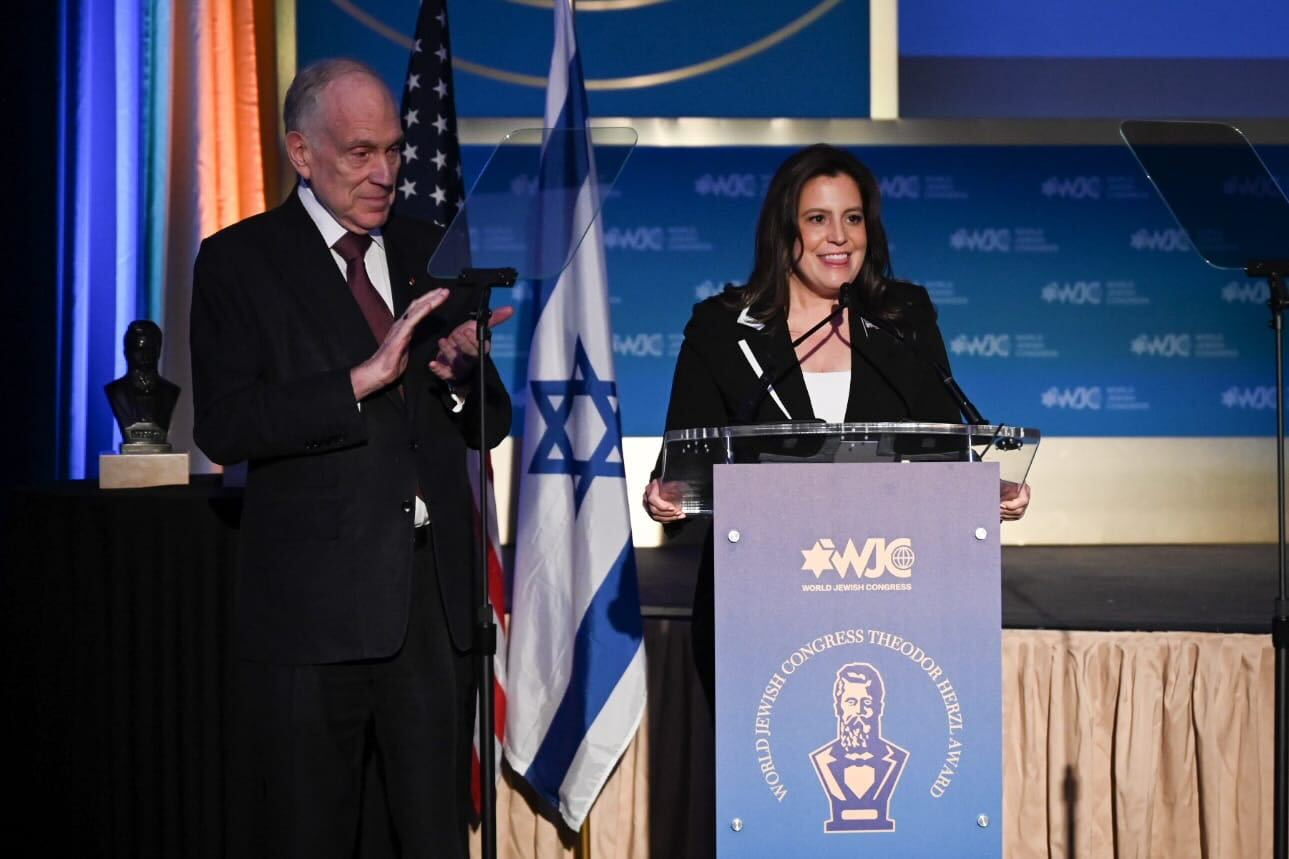
In the wake of a global rise in antisemitism, World Jewish Congress President Ronald Lauder told some 250 attendees at the organization’s annual gala dinner on Monday that the “only” solution is “creating more Jewish schools” and “taking the high ground in public relations,” reports Jewish Insider’s Haley Cohen for eJewishPhilanthropy. “The entire education system — K-12 to college — must be retaught. Laws must be passed that will focus on no racism, no antisemitism and no anti-Western civilization being taught,” said Lauder. “It’s [also] time we fight back with stronger PR to tell the truth about [antisemitism and Israel]. If Israel doesn’t want to do this, we in the Diaspora will help.”
The award goes to: At the event, held at the Museum of Modern Art in Manhattan, WJC presented its Theodor Herzl Award in recognition of pro-Israel advocacy and opposition to antisemitism to Sen. John Fetterman (D-PA), who could not attend as he was casting a deciding vote in a bid to reopen the government, and Rep. Elise Stefanik (R-NY), whom Lauder endorsed for governor of New York.
BETTER TOGETHER
Black, Jewish college students explore adversity, allyship at DC-area ‘Unity Dinner’
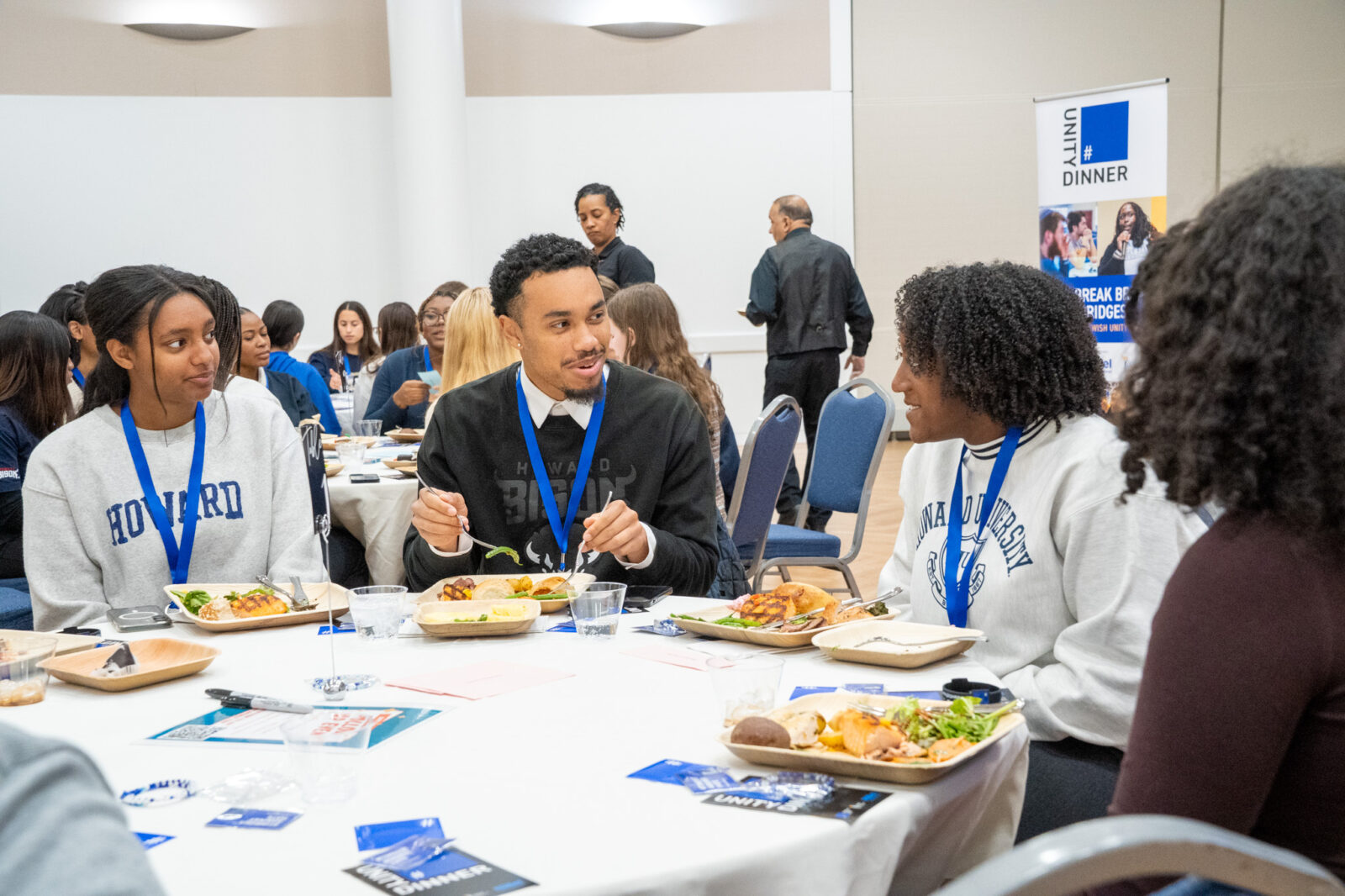
The official reason that more than 100 college students from across Washington gathered in a ballroom at George Washington University last week was for a formal dinner billed as an opportunity to build bridges between the Black and Jewish communities. But what really got the students — undergrads from GWU, American, George Mason, Georgetown, Howard and the University of the District of Columbia — talking at this event, which was meant to highlight commonalities and spark deep connections between students from different backgrounds, was a breezy icebreaker: Is a hot dog a sandwich? That was one of several lighthearted prompts for the students to discuss as they settled into dinner and got to know each other at tables of 10, reports Gabby Deutch for eJewishPhilanthropy’s sister publication Jewish Insider.
Digging in: Later, after they had introduced themselves and playfully debated topics like who would play them in a movie and their least favorite internet trends, the students turned to more personal questions about identity, community and belonging. It was an exercise carefully calibrated to build connection free from rancor, where the students could speak about themselves and their identities as racial and religious minorities without fear of judgment. “Every single time, I am amazed at the discussion and how vulnerable people will be,” said Arielle Levy, vice president of diversity, equity and inclusion at Hillel International. Levy shepherded the students through the increasingly more serious questions during last week’s dinner program. “I just really hope it leads to action, because that’s really what we’re hoping for.”
Read the full report here and sign up for Jewish Insider’s Daily Kickoff here.
BEST PRACTICES
Diversity under fire: What a multicultural hospital can teach the world
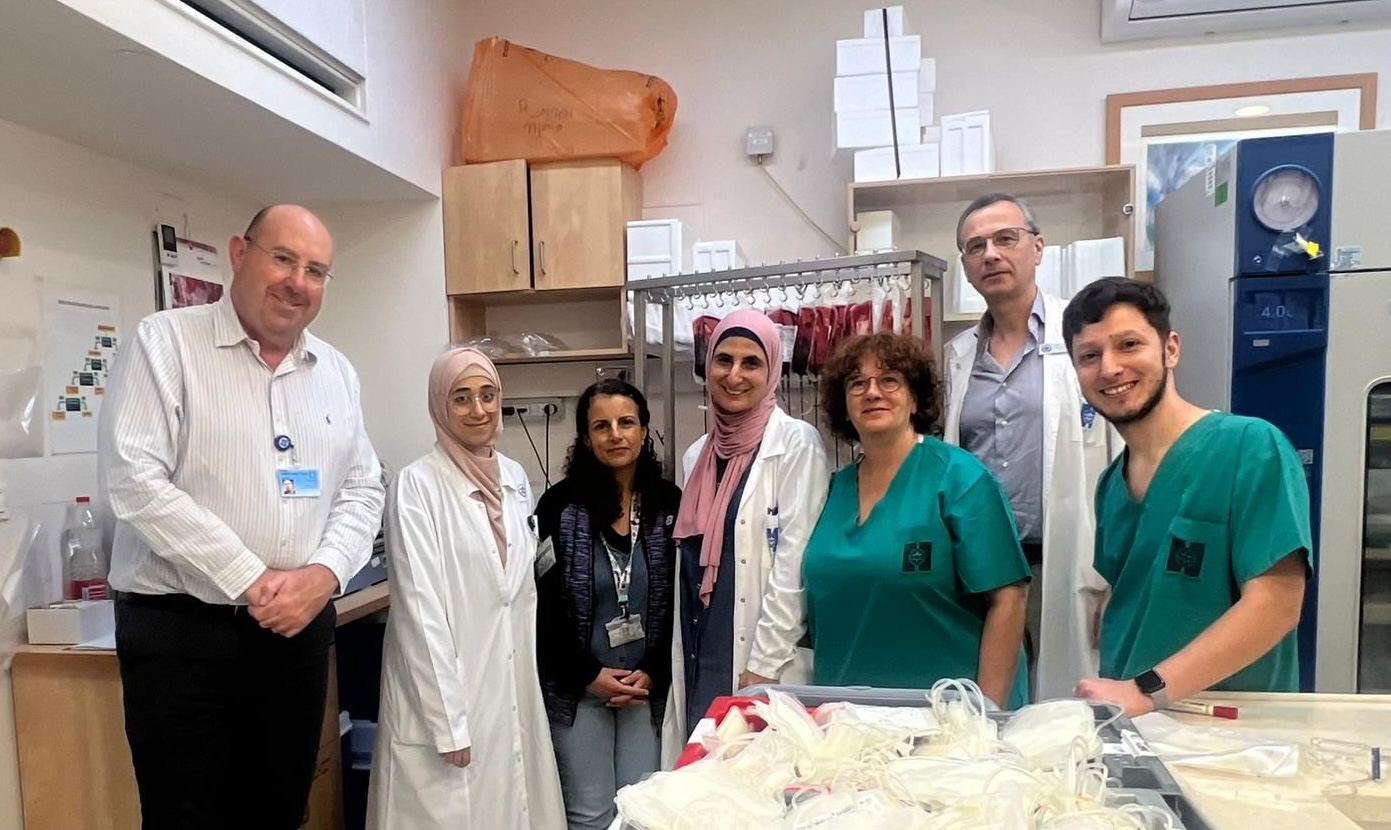
“Nursing is our calling, and we are especially proud to lead the nursing and patient-care departments of the Hadassah Medical Organization, the Jerusalem-based medical center of Hadassah, The Women’s Zionist Organization of America,” write Rely Alon and Orit Meridan in an opinion piece for eJewishPhilanthropy. “Over the medical center’s long history, its leaders have seen firsthand how diverse teams can provide compassionate care even in the most challenging circumstances — and never more so than after Oct. 7, 2023.”
Follow our lead: “What we have learned is that even in a time of unprecedented stress, an organization can maintain an environment of both compassion and professionalism and hold enormous complexity without breaking. What is needed is a unified effort to build intentional spaces for dialogue, an agreement among staff members of good intent and, underlying it all, a mission grounded in the belief in a shared humanity. If a medical center in the heart of Israel operating in the wake of the Oct. 7 attacks and during a time of war can maintain trust among an extremely diverse group of employees, perhaps it can serve as a model for other organizations struggling to heal internal fractures so that they, too, can do the work for which they were created.
MODEL OF MUTUAL INVESTMENT
From transaction to covenant: Rethinking clergy-congregation contract negotiations

“Contract negotiation is unavoidable. But how we approach it is a choice,” writes clergy coach and consultant Rabbi Elyse Wechterman, former CEO of the Reconstructionist Rabbinical Association, in an opinion piece for eJewishPhilanthropy.
Trust and transparency: “Too often, a moment to reflect on shared purposes and mutual respect turns adversarial, and the relationships built by praying together side-by-side, building trust in moments of vulnerability and sharing aspirations for their community morph into uncomfortable, sometimes bitter contests over salary, benefits, job descriptions and mismatched expectations. What ought to be a sacred covenantal dialogue becomes a hard-nosed business transaction. It doesn’t have to be this way. … [W]hen negotiations are approached as a partnership in a shared mission, rooted in trust and transparency, the outcomes can be healthier, more sustainable and more reflective of Jewish values.”
Worthy Reads
An Unequivocal Message: In The Times of Israel, Israeli President Isaac Herzog recalls his father’s address to the U.N. General Assembly 50 years ago, when he spoke out against a resolution declaring that Zionism is racism. “And in one of the most stirring and enduring moments in the history of that body, he tore his copy of the resolution in two, right there at the podium. … The resolution, as he saw it, was not just another UN political maneuver. It was a direct assault on the Jewish people’s identity, history, and fundamental right to self-determination – a form of organized political bullying meant to silence a voice and to demoralize a people. The pitch he had chosen was simply equal matching; a visceral, if still rational, meeting of the vitriol being lodged against our people.” [TOI]
Doing it Together: Marking five years since the death of Rabbi Lord Jonathan Sacks, Tanya White, a senior lecturer at the Matan Institute for Torah Learning and a lecturer at the Rabbi Sacks Institute at Bar-Ilan University, contemplates Sacks’ lessons on hope in an essay for 18Forty. “[One] idea has continued to echo through my mind over these past two years: his oft-quoted distinction between optimism and hope. Optimism and hope are not the same. Optimism is the belief that the world is changing for the better; hope is the belief that, together, we can make the world better. ‘Judaism,’ wrote Rabbi Sacks, ‘is the voice of hope in the conversation of humankind.’ These short yet powerful lines capture the essence of a uniquely Jewish theology that underpins Rabbi Sacks’ vast and far-reaching thought: a theology that places human freedom and responsibility side by side. … A theology that reinterprets the biblical concept of covenant for the challenges of modern liberal democracies.” [18Forty]
Optics Over Outcomes: In Inside Philanthropy, Monica DuPea cautions organizations and funders against rushing to celebrate activity as evidence of progress. “Modern philanthropy is driven by visibility. … The sector now runs on reputation economics, where the true currency isn’t results, but resonance. In this world, a flashy program that gives away meals or blankets will outperform a rigorous one that rebuilds lives, simply because the former photographs better. We call those programs ‘birdfeeders’; they keep people dependent while appearing to do good. They’re easy to fund, easy to promote and easy to celebrate — and must be constantly refilled.” [InsidePhilanthropy]
Not So Fast: In a blog post for the Capital Research Center think tank, Kali Fontanilla examines singer Billie Eilish’s recently announced $11.5 million donation to charity. “But once you scratch the surface, the halo starts to slip. The $11.5 million donation is not exactly coming out of Billie’s own wallet. Fans are encouraged to buy special Changemaker tickets. These are more expensive tickets, with a portion of the extra cost directed toward charity. … So yes, she is ‘donating,’ but the donation money is largely coming from her fans, not her own profits. It is like when grocery stores ask you to ‘round up for charity’ at the register while they take the credit and get the tax write-off. … Don’t get me wrong, giving is good. Nonprofits can be powerful forces for good when they are transparent, mission-driven, and accountable. But when celebrity charity becomes just another marketing strategy wrapped in moral superiority and hypocrisy, it cheapens real generosity.” [CapitalResearchCenter]
Word on the Street
Lt. Hadar Goldin, whose remains were returned to Israel on Sunday after he was killed and his body kidnapped to Gaza more than 11 years ago, was laid to rest this morning at the Kfar Saba military cemetery…
Jewish Insider interviews journalists Bianna Golodryga and Yonit Levi about their new book for middle schoolers about antisemitism, Don’t Feed the Lion…
A new study by the Women’s Philanthropy Institute determined that, in 2022, donations to nonprofits focused on women and girls amounted to 2.3% of all philanthropic giving that year, the highest level of support that the field has ever received…
The Wall Street Journal reports on Yale University’s attempt to stay out of the line of fire in President Donald Trump’s crusade against higher education, including President Maurie McInnis’ increased government lobbying expenditures and a student forum where classmates encouraged each other to refrain from disruptive anti-Israel protests…
Palantir CEO Alex Karp defended his support of Israel in an interview with Wired, saying, “Israel is a country with a GDP smaller than Switzerland, and it’s under massive attack. Some critiques are legitimate, but others are aggressive in attacking Israel. My reaction is, well, then I’m just going to defend them”…
Matthew Silver, a U.S.-born Israeli professor of modern Jewish history at the Max Stern Yezreel Valley College and the University of Haifa, died on Sunday at 64…
Major Gifts
Bloomberg Philanthropies committed $100 million to reducing the amount of methane in the atmosphere; the announcement comes alongside the COP30 environmental gathering in Brazil this week…
An unnamed George Washington University alum donated $4 million to the school’s Hillel — its largest-ever gift — for a Jewish education literacy initiative…
Transitions
Amir Gissin is stepping down as executive director of Maccabi World Union at the end of this month after three years in the role, plus one year as executive vice president…
Rabbi Evan Goodman has been hired as next director of development and communications at the Jewish Public Affairs Committee of California…
Sasha Krasny is joining the American Jewish Joint Distribution Committee as director of global strategic philanthropic partnerships…
Pic of the Day
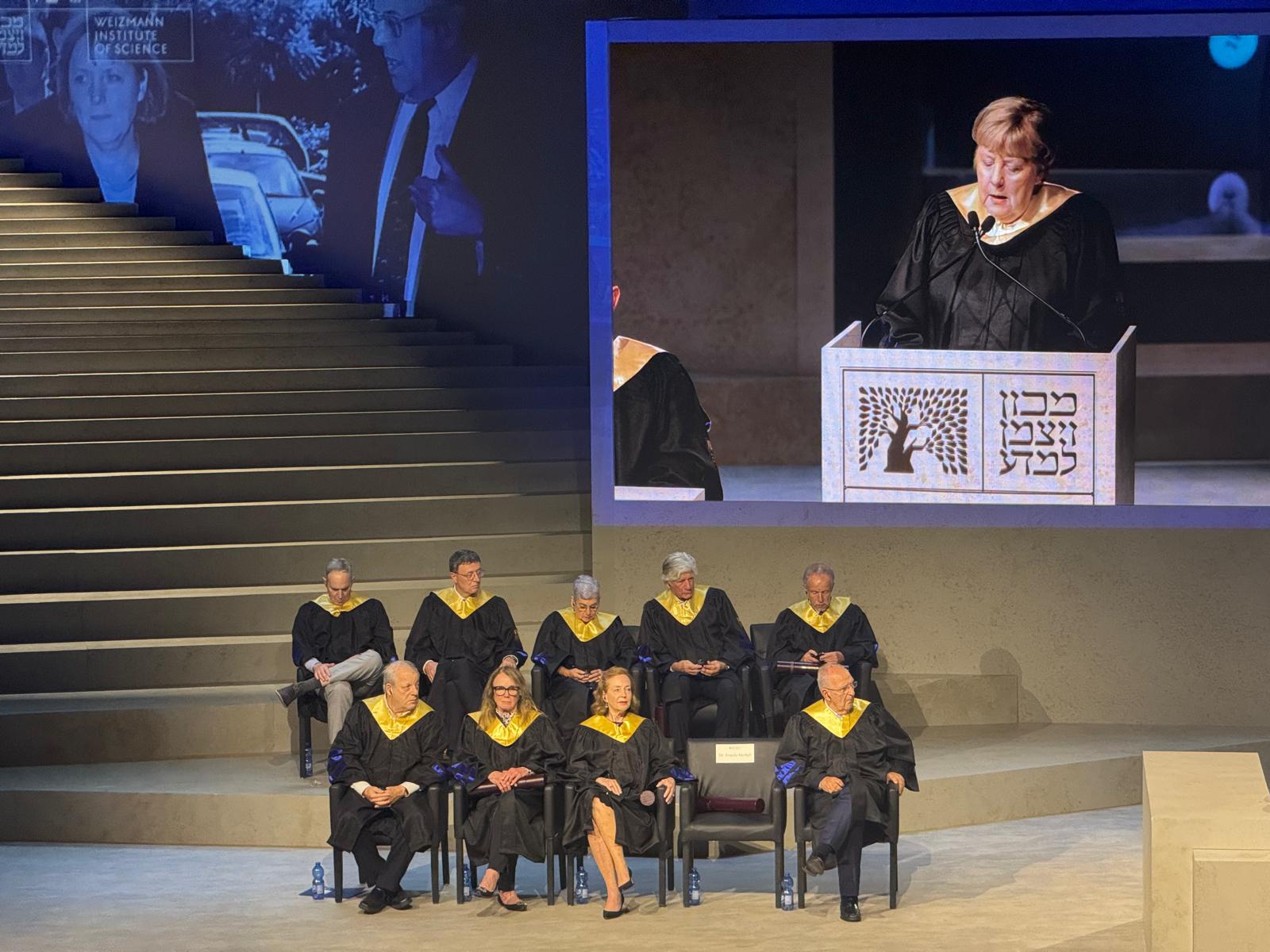
Former German Chancellor Angela Merkel receives an honorary doctorate yesterday from Israel’s Weizmann Institute of Science. The other recipients are: philanthropist Karen W. Davidson, Moroccan-born businessman Maurice Lévy, Russian-born biologist Eugene V. Koonin, philanthropist Ilana Ronat-Mantoux, entrepreneur Yehudit Bronicki and German biologist Patrick Cramer.
The Weizmann Institute, located in Rehovot, was severely damaged this summer by an Iranian missile strike; last month, it was ranked sixth in the world for quality of research by Leiden University’s Centre for Science and Technology Studies.
“The last two years have been among the most difficult in Israel’s history, and the last several months — the most challenging moment in the history of the Weizmann Institute,” Alon Chen, the institute’s president, said in his address last night. “Now, we are at a turning point — to what we believe is a better, brighter and promising future.”
Birthdays
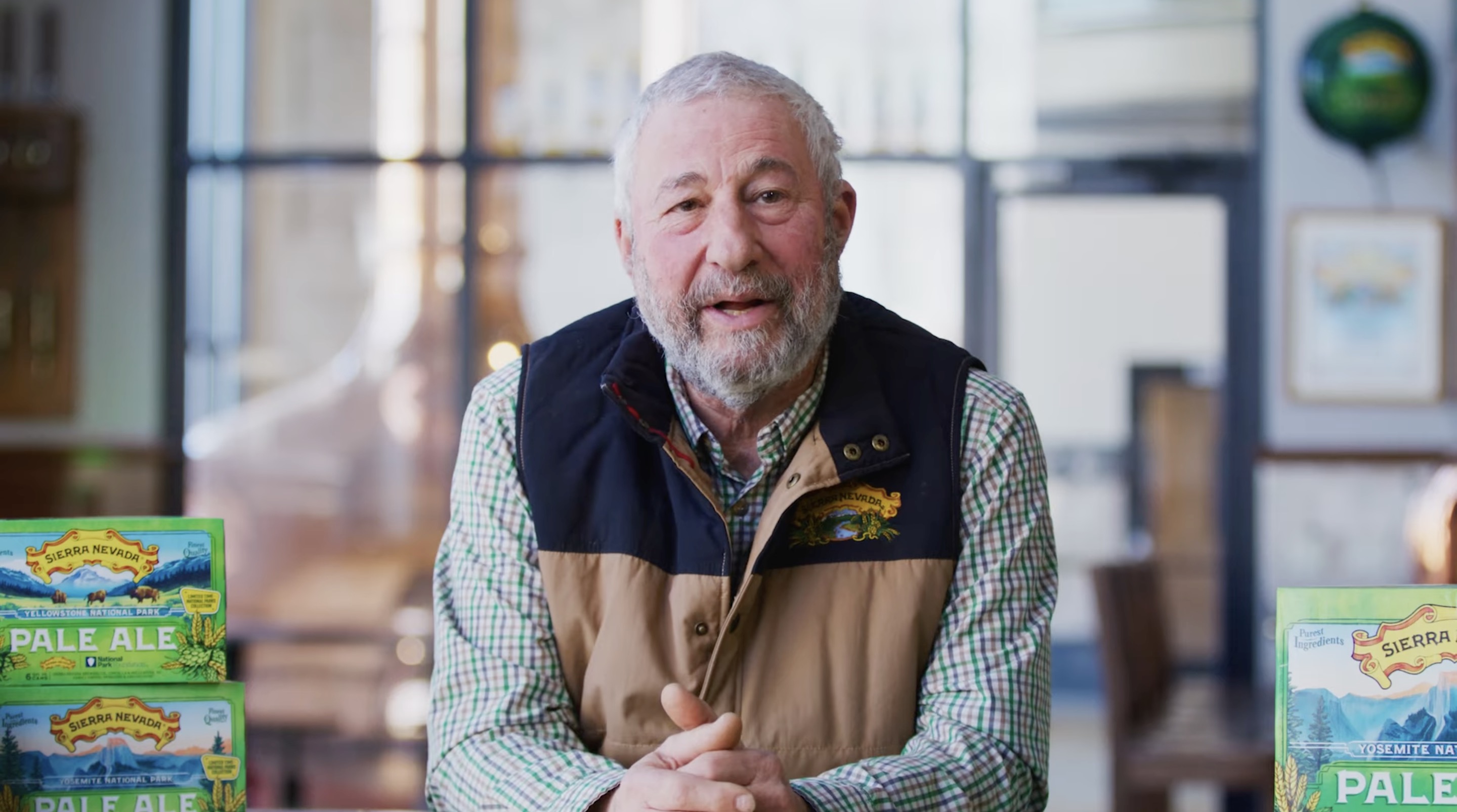
Founder of Sierra Nevada Brewing Company, Ken Grossman turns 71…
Retired psychiatric nurse now living in Surprise, Ariz., Shula Kantor turns 98… Retired television and radio sports broadcaster, Warner Wolf turns 88… Former Democratic U.S. senator from California for 24 years, Barbara Levy Boxer turns 85… Author, best known for her 1993 autobiographical memoir Girl, Interrupted, Susanna Kaysen turns 77… Television personality (former host of “Double Dare”), known professionally as Marc Summers, Marc Berkowitz turns 74… Founder and president of D.C.-based Plurus Strategies, David Leiter… President at American Built-in Closets in South Florida, Perry Birman… Aish HaTorah teacher in Los Angeles, author and co-founder of a gourmet kosher cooking website, Emuna Braverman… Talk show host and founder of Talkline Communications, Zev Brenner turns 67… Philanthropist and founder of Portage Partners, Michael Leffell… Professor of philosophy at the University of Wisconsin-Madison, Steven M. Nadler turns 67… Former U.S. ambassador to the Czech Republic, he served as a counsel for the Democrats during the first Trump impeachment, Amb. Norman Eisen turns 65… Russian-born entrepreneur, venture capitalist and physicist, Yuri Milner turns 64… Founder and executive director of Los Angeles-based IKAR, Melissa Balaban… Former Israeli Police commissioner, Kobi Shabtai turns 61… Emmy Award and People’s Choice Award-winning television producer, Jason Nidorf “Max” Mutchnick turns 60… Former member of the Knesset for the Likud party, Orly Levy-Abekasis turns 52… Tel Aviv-born actor and screenwriter, he is best known for his roles in “The Young and the Restless” and “NCIS,” Eyal Podell turns 50… Former Pentagon policy official, now vice president of the American Jewish Committee’s Center for a New Middle East, Anne Rosenzweig Dreazen turns 43… Defender for the Houston Dynamo in Major League Soccer, Daniel Steres turns 35… Formerly the finance director at the campaign for Rep. Matt Cartwright (D-PA), now a deployment strategist at GovWell, Shelly Tsirulik… Survivor of the mass shooting at Marjory Stoneman Douglas High School, he has become an advocate against gun violence and recently launched his congressional campaign for the seat of retiring Rep. Jerry Nadler (D-NY), Cameron Kasky turns 25…


 Add EJP on Google
Add EJP on Google